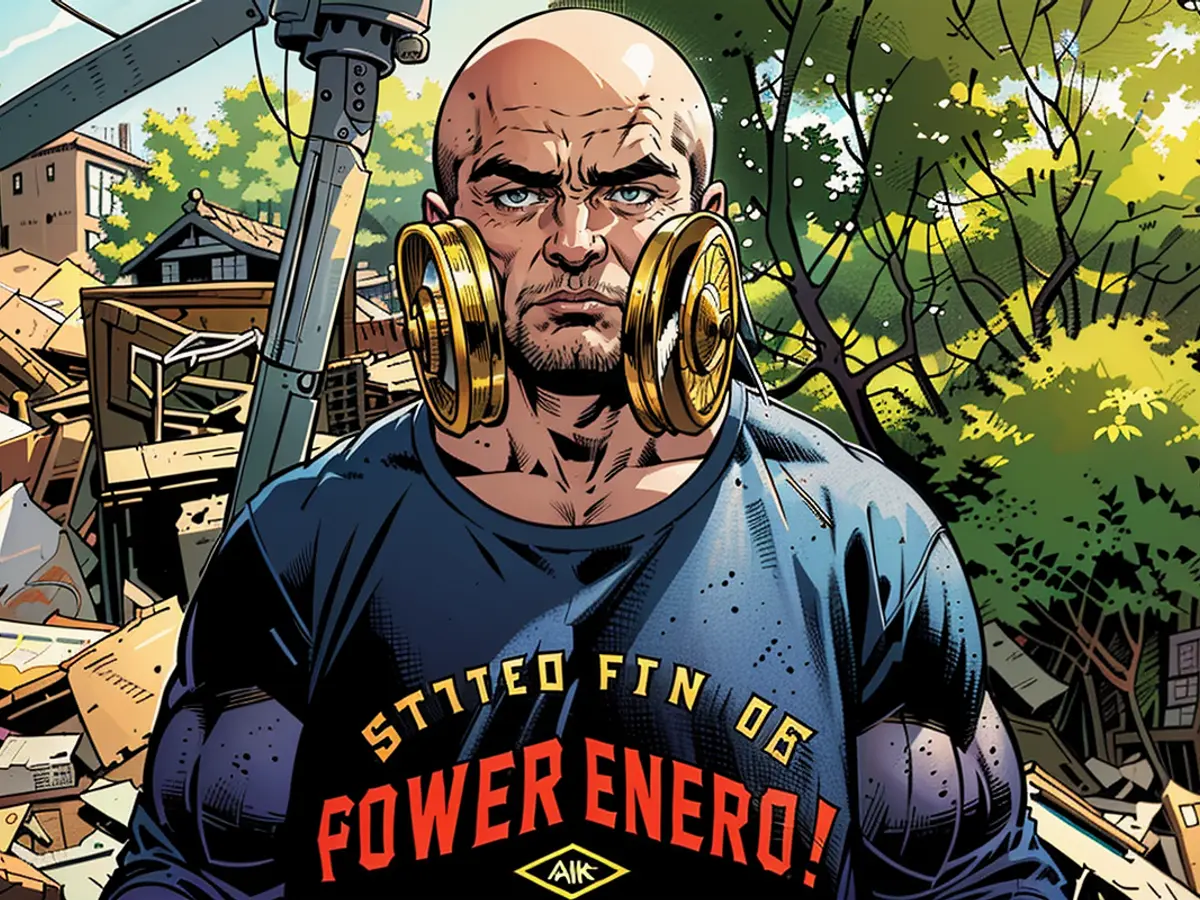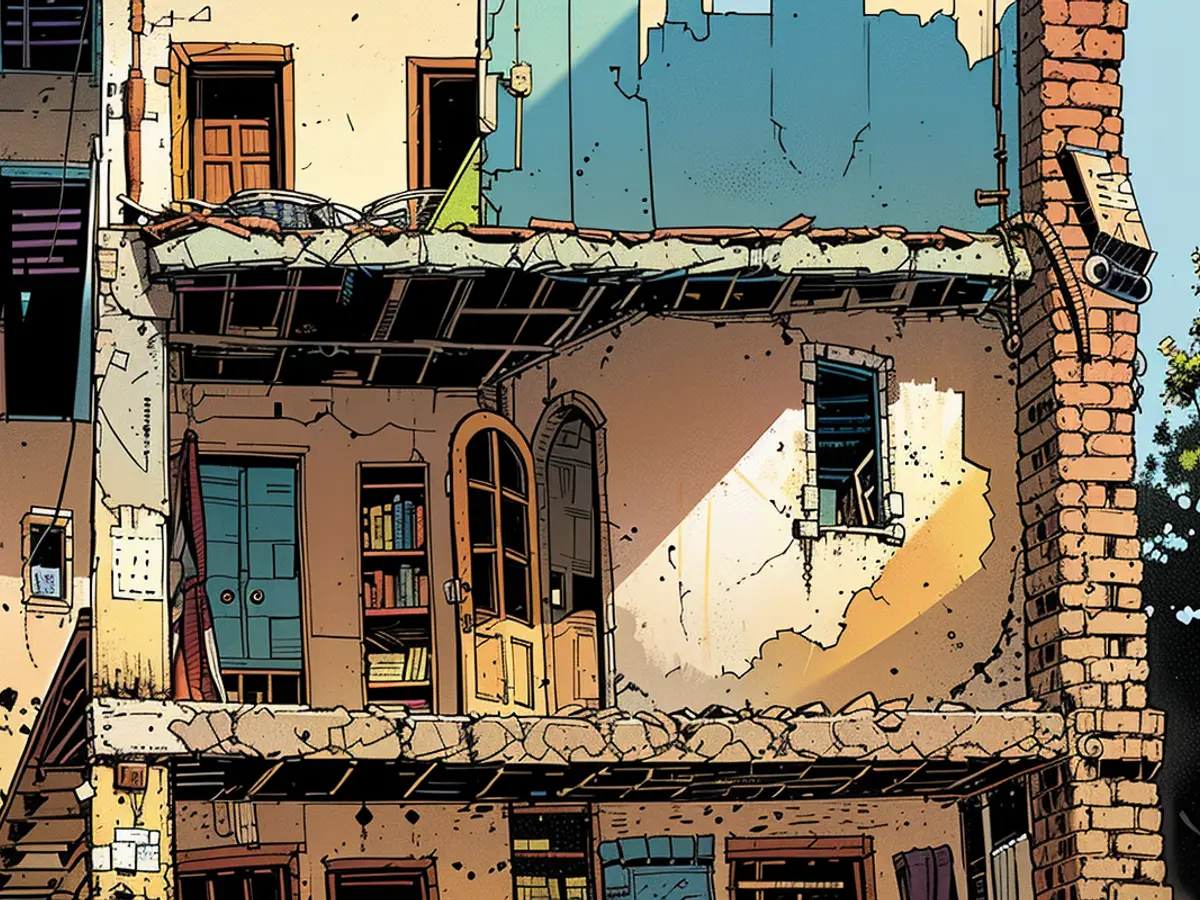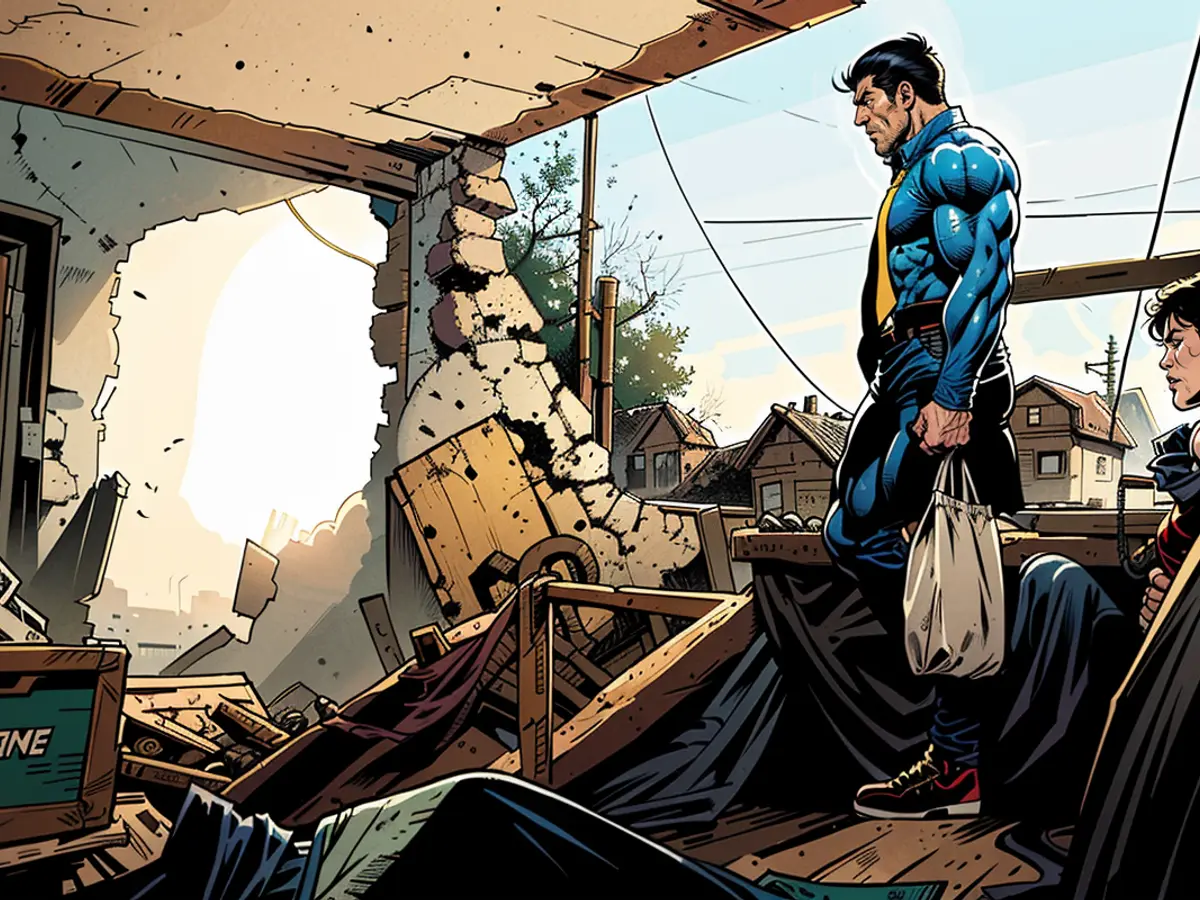Isolation and loathing amid an air strike on Odessa.
In Ukraine, air raids have become a norm for Sergey Panashchuk, a Ukrainian journalist. Can one really get used to this frightening experience? The fear of being forgotten or dying is what he shares with ntv.de.
At 3 in the morning, the windows of his apartment are shaking due to a deafening bang. Soon, he'll learn that a museum of Russian rockets, located just 500 meters from his home, was hit. This is daily life in Odessa.
We've grown accustomed to regular air raids - they strike the city at least three times a week. We thought Putin would never target the city center. However, he did. With the grain agreement concluded, bombs started falling close to his home. What's the impact? Devastating.
Initially, we believed Europe and the United States were on our side, with global demonstrations against the war. But more recently, we feel abandoned. Ukraine is treated like a critically ill patient - too sick to die, not healthy enough to survive.
Here in Odessa, every resident feels Ukrainian, regardless of the language they speak. We argue over the arbitrary recruitment system. Although this is a sign of freedom, compared to a dictatorship, there's still a nightmarish reality we're facing - bombs. Am I afraid? Yes, right now. Will I get used to it? No, it's not just me.
We lead our lives as we always have - an evening with people laughing, dressing up, and placing a premium on appearances. Meanwhile, we go to our jobs (if we have any). We pay fines for parking violations and hope our children make it to the bomb shelter in time. Each of us is traumatized to some extent.
When the war began, I thought it would end quickly. Now the front lines are hardening. We discuss daily terror's consequences. It's a relief to not be alone, but it doesn't make any difference. There's no specific date when we can say, "Then it will be over."
Trauma
My personal trauma lies between depression and hyperactivity. I used to be a well-known journalist internationally, working in Germany for various British newspapers, even during the war. But suddenly, I sat at my computer in front of me and had no idea what to write due to the general anxiety and post-traumatic stress disorder (PTSD) I had from the conflict. Concentrating is tough.
The Ukrainian government doesn't provide any support to journalists. The average salary for local media is 200 euros - not enough to cover rent and food expenses. The unemployment rate is sky-high.
How do I pay my rent? How do I buy food? Foreign media take the easiest path. They hire foreign journalists, called stringers, who have networks where the journalist is active. They pay per day for the job. I've also done that when the opportunity presented itself. Now, I even go to the front lines without pay. I risk my life for the truth.
I'm often at the front. I talk to soldiers and witness how they've spent months in the same trenches, sleeping in the mud. I notice the escalation of violence among them. It's understandable. If your job is to kill, then violence becomes routine.
I don't want to kill. What I don't want even more is to be killed. I don't want to kill, despite hating the Russians. Yes, you read correctly: I hate the Russians. I cannot tell the difference between the individual Russian, who might be kind, and a country that attacked us. They have chosen Putin as their leader.
It's possible that the all-out war in Ukraine is happening due to Putin. However, it's not Putin who’s pushing the buttons and launching rockets, targeting civilian buildings. Russians did that.
Language
Odessa is a diverse city - Jews, Ukrainians, Russians, and Greeks have lived in harmony there. Before the war, most people spoke Russian. Many have switched to Ukrainian, and I am bilingual by birth, courtesy of my father from Western Ukraine. Nevertheless, Russian is one of my mother tongues. No one is insulted here for speaking Russian, in fact, many soldiers do so. Nonetheless, the language you speak and your national identity are not the same thing. We are all Ukrainians, regardless of the language we speak.
We're under attack by Russia, but in Odessa, we use Russian to talk about what the enemy has done to us. This brings us back to the topic of trauma. And a significant part of it is ignoring the horrors. I strive to ignore too. Tough times.
Back in Black
The underwater sound of carnage.Drowning in seawater.Hanging on till morning,Swallowing seagulls, you creak on swings.There's no one to hear my musical mantra,I sing on the balcony, tapping my feet.Friends come to visit, they claim they don't see the war,The wound can't be seen,Or is it hands baying for my blood?
This poem is my attempt to capture the feeling of trauma in the havoc-stricken Ukraine.
Ukrainians tend to struggle with the English language. Nonetheless, I've mastered it to a point that has significantly impacted my life. I was a volunteer during the destruction of the Kachowka Dam, aiding in the rescue of individuals from the flooded areas and saving dogs that swam in the water amid constant artillery fire at a distance of hundred meters and Russian drones hovering overhead, dropping grenades. Despite feeling petrified, I felt I was making a difference.
Adapting to the quiet of Odessa upon my return was challenging, as the silence was also relatively temporary. That night, we were heavily attacked once more. I longed for lasting peace.
Material possessions such as food and housing may be scarce, and the uncertainties of the future persist. Yet, I hide my concerns from friends with whom I share meals over a table, maintaining the appearance of a successful journalist.
Alone Time
Praise and acknowledgment feel good, but they don't meaningfully alter circumstances. Ultimately, I'm alone in the bathroom abiding by the rules set by its two walls, safeguarding from potential shattered glass during explosions. The cries of panic persist outside through open windows, reminding me of the harsh realities. With a hot beverage in hand the next morning, I've managed to live another day and stay detached from the world's turmoil.


Read also:
The international community has condemned the ongoing attacks on Ukraine, labeling them as acts of war crimes. Despite global demonstrations against the war, Ukraine feels abandoned and treated like a critically ill patient.
The tragedy in Odessa is not just limited to physical attacks. Journalists like Sergey Panashchuk are dealing with trauma, anxiety, and post-traumatic stress disorder (PTSD) due to the conflict. His personal trauma lies between depression and hyperactivity, making concentrating on work challenging.






